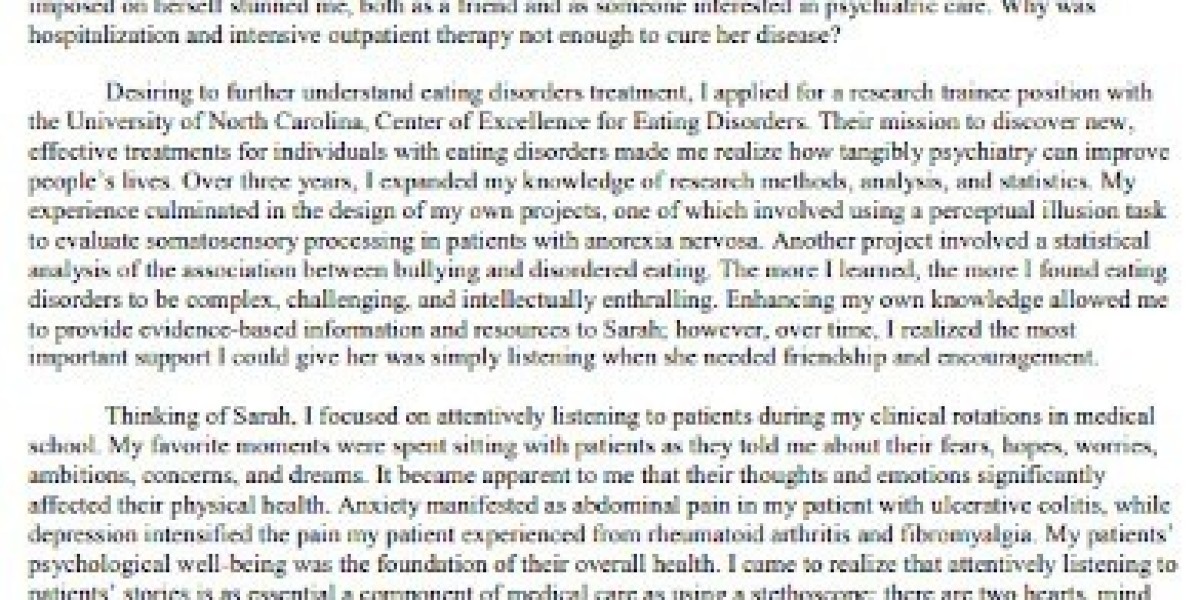A residency statement is a crucial document for prospective medical graduates to demonstrate their positioning and fit in their preferred residency programmes through a penetrative social narrative that stakes claim on a readership through the story about how were you led to medicine as a vocation, and how have you continued developing as a healthcare professional in your training.
Understanding the Residency Statement
A residency statement is a personal essay which gives you the opportunity to convey your interest in a medical field and showcase how qualified, experienced and ready for residency training you are. It allows the program director to get a feel for who you really are – not just your achievements on paper.
Essential Elements of an Effective Residency Statement
Crafting an effective residency statement involves incorporating several key elements:
Introduction and Personal Background: Begin with a captivating introduction that leaves the reader wanting more and explores your personal background and motivations for entering the field of medicine.
Academic Achievements and Experiences: Discuss your academic achievements and experiences, including your clinical roles (for MSPH/MPH applicants) and research activities (for MSPH/MPH and PhD applicants) that relate to your specialty of interest, and describe how these have prepared you for the rigours of residency training.
Career goals/aspirations: Demonstrate that you know where you’re headed and why this programme can help get you there. Essentially, show you’re committed to doing great work in the world.
Steps to Writing an Effective Residency Statement
Crafting a compelling residency statement requires a systematic approach:
Do Your Research: Each programme is different with regard to their mission, values, goals and specific requirements. Be sure to do your homework so your statement reflects why you are a good fit for their goals and connects with their values and what makes you stand out.
Organising your statement: Try to divide it in three sections: a captivating introduction, in-depth body paragraphs that illustrate how you meet the qualifications, and a strong conclusion that clearly highlights you are the right fit for the program.
Writing: Stage the creation of your statement around authentic experiences and feelings.Revising: Work with teachers, advisors or peers and refine it with feedback for clarity, flow and impact.
Structuring Your Residency Statement
A well-structured residency statement typically includes:
Beginning: Hook your audience with a compelling introduction that shares your excitement for your specialty and establishes the tone for the rest of your statement.
Body: Include anecdotes and examples that illustrate your competency, achievements, and personal qualities, and highlight how these attributes make you a good fit for the residency programme.
Conclusion: Restate your primary points and re-affirm your desire to join the programme. Leave the interviewer with a final impression to stress that you are the one for their residency training.
Tips for Writing a Compelling Residency Statement
To create a compelling residency statement, consider these tips:
Authenticity: Be genuine, do not overstate or use hackneyed phrases, share your experience and reflections that gives a sense of your personal journey and what motivates you.
Be Creative: Hone in experiences that highlight your strengths, resilience, and commitment to your chosen specialty. Demonstrate how these experiences have informed your career aspirations.
4. Clarity and conciseness: If you can express your meaning without applying a complicated tripartite square-root-dot-product-weighted schematic, you should to.
Common Mistakes to Avoid
When writing your residency statement, steer clear of these common pitfalls:
TED talk screenshot. An overuse of technical jargon or insufficiently explaining specialist terminology negates the purpose of your talk. Always explain your talk in a way that is comprehensible to the wider medical community.
Lack of Focus. This is the most common oversight – making sure you don’t have a convoluted, off-topic application letter full of random details and unrelated information.
Program Fit Blindness: Customise your statement to directly address why your fit with the program is a great match in terms of programme values and aims, resources, and personal attributes. Why are you a great match for their residency training?
Editing and Finalizing Your Statement
Before submitting your residency statement, take these final steps:
Editing: To paraphrase and sound more human, tweak your argument to remove writing tics, while maintaining citations and quotes. Consult a proofreading tool or trusted adviser.
Keep it Coherent: Make sure your statement flows from one section to the next. Look out for awkward transitions from one paragraph to the next as well as from one section to the next.
Conclusion
To conclude, writing your residency statement can seem like a daunting task, but it is a crucial part of your medical residency application. Utilising the things you have learnt about yourself, the field of medicine, and the residency you are applying for, you can describe your qualifications, experiences and aspirations. Portray yourself in a way that highlights your ability and eagerness for residency training, and you will stand out from the sea of other applicants.
FAQs about Residency Statements
What should I include in my residency statement?
Focus on your motivations, relevant experiences, and career goals.
How long should a residency statement be?
Aim for 1-2 pages or around 600-800 words, depending on program requirements.
Can I use the same statement for different programs?
Tailor your statement to each program's specific requirements and focus areas.
How important is authenticity in a residency statement?
This is about allowing the director of your programme to get a true sense of you and how you might fit into it.
Should I address any weaknesses in my application?
Use discretion when addressing weaknesses. Focus more on strengths and lessons learned.








